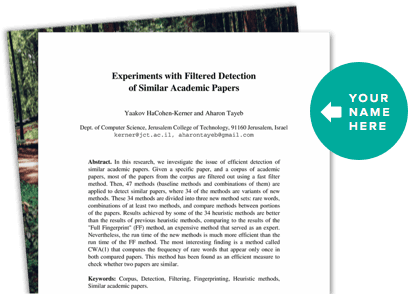About This Project
Bats are healthy carriers of viruses (i.e., rabies, coronavirus) that pose a risk to human and animal health. We currently do not know how their gut microbiota may contribute to their protection against viruses, although in humans, the microbiota is known to have a key influence on the immune response. Our objective is to evaluate, for the first time, the nature of the association between the gut microbiota of Artibeus lituratus and their ability to be healthy reservoirs of viruses.
Ask the Scientists
Join The DiscussionWhat is the context of this research?
In mammals, but not in bats, it is well known that the microbiota plays a crucial role in the development and modulation of the innate and adaptive immune systems and appears to also act as a modulator of type I and III interferon-mediated antiviral responses, indirectly involved in the control of viral infections. Recently, it has been proposed that the unique gut microbiota of bats may modulate antiviral responses by contributing to their ability to act as reservoirs of viral pathogens, although the link to this ability remains unexplored.
Then, we propose to establish the relationship between the intestinal bacteria of Artibeus lituratus and its ability to be a reservoir of the rabies virus while remaining healthy.
What is the significance of this project?
Given the current limited knowledge on the relationship between the gut microbiota of bats and their ability to remain healthy despite being a viral reservoir, it is hoped that this first baseline study will provide crucial information that will help establish the mechanisms by which Artibeus lituratus, a widely distributed bat, evades rabies virus infection despite being its carrier. It is expected that this study will provide fundamental information to elucidate the role of bat intestinal bacteria in their immune modulation by exploring their metabolic pathways and associated genes and identifying those that may be related to the maintenance of their health status.
What are the goals of the project?
The funds will be used for the purchase of laboratory and molecular biology consumables and computational equipment. It will allow the hiring of two professionals, one to support the laboratory work and the other to ensure the correct implementation of the proposed bioinformatics techniques. At the end of the research, it will also allow the partial financing of a publication in a high-impact journal in the Q1-Q2 quartiles.
In addition, funds raised will pay for high-throughput molecular analyses, including sample shipment and payment for high-throughput sequencing of six extracted nucleic acid samples (Total RNA from bat guano). Both the extraction processes and the molecular analyses are indispensable for the successful completion of the research.
Budget
The budget items will be essential for the development of the research project, as follows:
1. Guarantee the acquisition of supplies for the extraction of total RNA from the guano and blood samples previously collected, as well as for the practice of PCR and PCR-RT techniques.
2. It will allow the hiring of a support professional for the molecular analysis processes in the laboratory.
3. Guarantee the payment of the total RNA analysis that will allow the profiling of the gene expression of the bacteria present in the guano of the collected bats.
4. Acquire personal computer equipment with the capacity to perform the required bioinformatics analysis, as well as hire a bioinformatics consultant to assist in this process.
5. Partially finance the publication of an academic article in a high-impact international journal.
.
Endorsed by
 Project Timeline
Project Timeline
Once the funding period is over, the purchase of materials will begin, which, due to the import policy, may take up to two months. The extraction of nucleic acids from the samples (previously collected earlier this year) will take six to 10 weeks, and the analysis of the results and the respective statistical methods will be carried out within 60 days. The final report of the results and the elaboration of the research article will be completed in two additional months.
Nov 03, 2023
Project Launched
Dec 18, 2023
Start of the purchase process of laboratory equipment, kits, and computer equipment.
Feb 18, 2024
Extraction of nucleic acids from the collected guano samples (RNA).
Apr 07, 2024
Sending the samples for sequencing to Novogene Co.
Jun 07, 2024
Execution of the appropriate statistical analysis and analysis of the NGS sequencing results.
Meet the Team
Ana Rengifo-Gallego
I am a biologist, researcher, and PhD student in Sciences—Biology with an emphasis in applied biology and molecular biology at the Universidad del Valle in Cali City, Colombia, South America. I have experience in basic research on microbial interactions between hosts (i.e., plants, algae, and animals) and their microbiomes.
Through my experience as a researcher and teacher, I have acquired technical skills in molecular biology, microbiology, bioinformatics, and experimental design, which allow me to carry out types of research such as data mining and experimental investigation simultaneously. This combination of skills allows me to evaluate the biological problem as an interactive phenomenon, allowing me to identify a robust set of variables to be examined simultaneously in a single experimental time.
The first biological problem that I approached was in my undergraduate thesis project, in which we explored why a heavy metal-accumulating red algae (Bostrychia calliptera) incorporated the metal into its cytosol when it was not naturally bioavailable. Then a bacterial consortium was identified as a contributor to this process in biofilm form, helped by the polysaccharides that the algae exude into the seawater.
At the Universidad del Valle, I am currently working on the research project 'Observational study of gut bacteria of Phyllostomidae bats and their relationship with viruses causing zoonotic diseases', in which we propose a two-phase study (data mining and experimental). Our hypothesis is that gut bacteria have a relationship with viral immune control in bats. Due to the gaps on this topic, this research addresses for the first time, exploring the interaction through the analysis of previous results (meta-analysis) and experimentally evaluate the link in Artibeus lituratus and the rabies virus. In this second phase, the Experiment.com platform is crucial to its development.
Andrea Niño Castro
Biologist graduated from the Universidad Nacional de Colombia and I completed a master's in Biochemical Sciences at the same university. I obtained my Natural Sciences PhD in 2013 at Rheinische Friedrich-Wilhelms-Universität Bonn. I am interested in the relationship between immune response and metabolism in vertebrates and invertebrates. During my career, I have worked with immunity in humans and wildlife animals at cellular-molecular and organismic levels. I am interested in bats because they exhibit high viral infection tolerance and have exciting features like powered flight. Although it is clear that bats have unique features in their immune response, we do not know how the bat microbiota can interact with the bats' immune system to shape a protective immune response.
Lab Notes
Nothing posted yet.
Project Backers
- 6Backers
- 2%Funded
- $77Total Donations
- $12.83Average Donation

